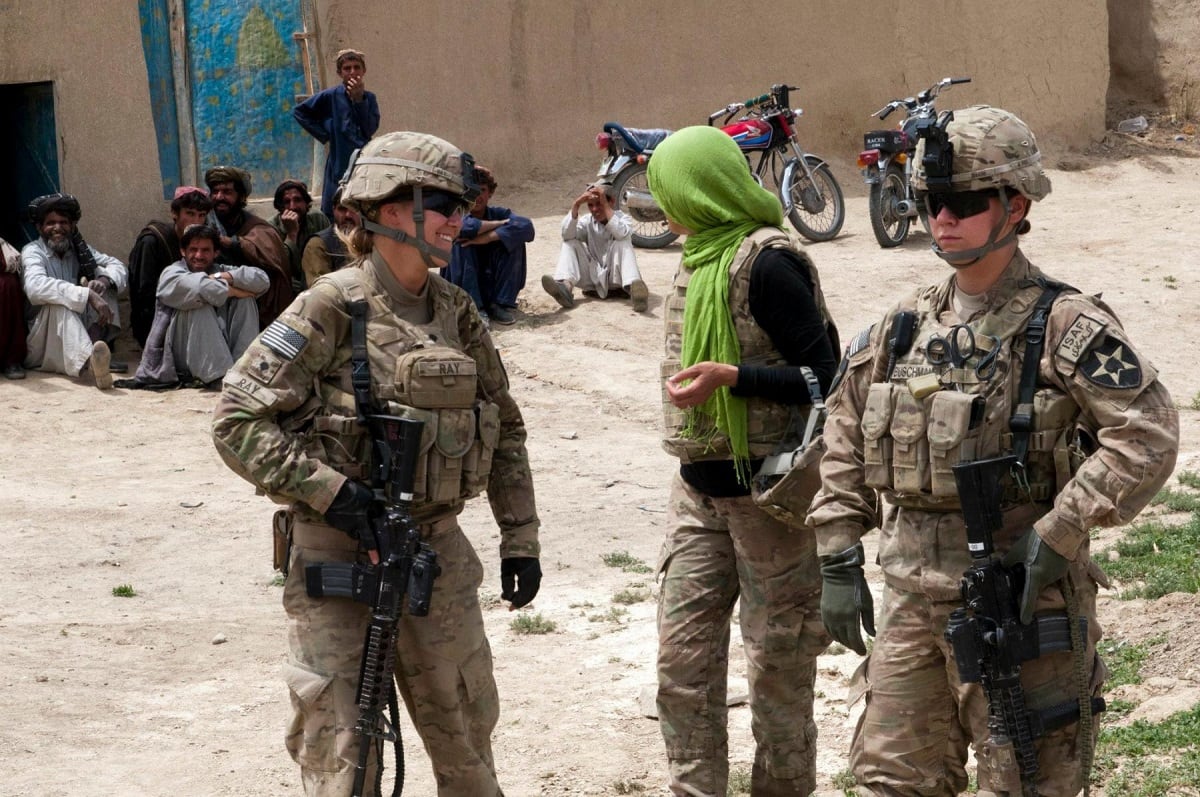Since last summer, Daniel Elkins has seen a steady increase in the number of panicked messages from foreign translators working with U.S. forces deployed to overseas conflict zones.
“They keep saying ‘we’re in danger,’” said Elkins, a founding member of the Special Operations Association of America who still maintains ties with interpreters he served alongside in Afghanistan in recent years.
“We’re seeing increases in reports of interpreters being attacked and hospitalized. With some of the recent drawdowns of U.S. forces, they’re afraid they’ll get left behind.”
That’s not an off-base fear. Nearly 120,000 foreign translators who aided U.S. forces have applied for special visas to resettle in America, most located in and around Iraq.
The process under the best of circumstances can take more than 36 months, and slowed significantly in recent years. At least 7,000 visas meant to be available to Afghan allies went unused last year, according to State Department figures. Advocates blame that not on a lack of interest from foreign allies but on inefficient or intentionally troublesome bureaucracy.
RELATED

The group No One Left Behind has documented over 300 instances of interpreters and their family members being killed because of their work with the United States.
But now some groups are hopeful that the topic — one that has been widely discussed in the military community for years but largely remained out of sight of the American public — is about to get a new audience.
Last week, President Joe Biden signed an executive order on immigration and climate change that in part would mandate a full review of the Special Immigrant Visa programs for Iraqi and Afghan allies, to “ensure that these important programs are administered without undue delay.”
By August, Defense and State Department officials are scheduled to release a report on the findings, to include ways to speed up the process and increase the number of available visas. That could include a new program to expedite requests for individuals who “have experienced or are experiencing an ongoing serious threat as a result of their service.”
Officials at No One Left Behind, which for nearly the last decade has advocated for improvements in the system, hailed Biden’s move as an important first step in fixing the issue.
“We have been advocating for Afghan and Iraqi interpreters through three presidential administrations and five Congresses,” group officials said in a statement. “We are humbled and incredibly grateful for President Biden and Vice President (Kamala) Harris’ bold action.
“This will save the lives of thousands of our partners and will have a profound impact on U.S. national security.”
Advocates for years have argued that improving protections for foreign interpreters and other aides is critical for maintaining trust with would-be allies in the future.
But Elkins said the moral responsibility goes beyond that.
“One of my interpreters got shot in the face while helping us,” he said. “We have to keep our word that we’re going to help these people after they helped us. That’s the way it has always worked in the past, and it’s what we have to do now.”
RELATED

The executive order doesn’t mandate any immediate changes to the program, although some improvements may already be underway. A State Department official told Military Times that the U.S. Embassy in Kabul is resuming work on thousands of special visa applications from locals that were stalled early last year because of the worldwide coronavirus pandemic.
“This month, the Embassy’s Consular Section began a phased resumption of immigrant visa interviews, including interviews for SIV applicants,” a State Department official told Military Times. “The initial phase will prioritize interviews postponed earlier, after which we expect to coordinate with the National Visa Center to resume scheduling new Immigrant Visa appointments for applications that are documentarily complete.”
Whether officials in the new presidential administration go even further with reforms remains to be seen. For now, Elkins said he remains hopeful that more help is on the way.
“This feels like a substantial shift in policy from the new administration,” he said. “Right now, we’re leaving behind people who served our nation. We have to fix that.”
Military Times managing editor Howard Altman contributed to this report.
Leo covers Congress, Veterans Affairs and the White House for Military Times. He has covered Washington, D.C. since 2004, focusing on military personnel and veterans policies. His work has earned numerous honors, including a 2009 Polk award, a 2010 National Headliner Award, the IAVA Leadership in Journalism award and the VFW News Media award.





